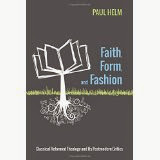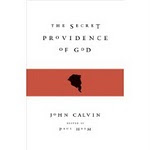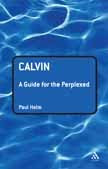In the Baptist Confession of 1689 there is
an explicit statement regarding ‘Christian liberty’, chapter XXI. The first
three paragraphs are very similar to Chapter
XX of the Westminster Confession,
but it omits the fourth paragraph. The omission is significant. The Westminster
Confession went on to say, in XX.IV.
IV And because the powers which God hath ordained, and the liberty which Christ hath purchased, are not intended by God to destroy, but mutually to uphold and preserve one another: they who upon pretence of Christian liberty, shall oppose any lawful exercise of it, whether it be civil or ecclesiastical, resist the ordinance of God. And for their publishing of such opinions, or maintaining of such practices, as are contrary to the light of nature, or to the known principles of Christianity, whether concerning faith, worship, or conversation; or to the power of godliness; or such erroneous opinions or practices, as either in their own nature, or in the manner of publishing, or maintaining them, are destructive to the external peace and order which Christ hath established in the church; they may be lawfully be called to account, and proceeded against by the censures of the church, and by the power of the civil magistrate.
That is quite a mouthful. Its effect is to
snuff out the positive claims of the earlier sections of the chapter. It effectively takes away what was given in the previous three paragraphs.
For the Westminster system outlined here makes it clear that the diktats of the church by law established
and the power of the civil magistrate to enforce them mark the limits of
toleration in religion. So for the London Baptist Confession to leave IV out in
a document that otherwise so closely follows the wording of the Westminster
Confession, was a significant act. To put it no higher, it implied that a
person in good conscience may hold a view that the established church (were it
to be established, which mercifully it never was) contradicted. By such an act
the exclusive confessionalism of the
established church (which at the Restoration was the episcopal Church of
England as it turned out, taking the place of the failed Westminster
establishment project) was denied.
The chapters of the Westminster Confession
(Ch. XXIII) and the Baptist Confession (XXIV) are also significantly different
respecting the scope of the Magistrate’s responsibility. These differences are
a direct consequence of those differences we noticed respecting Christian
liberty. Paragraph III of the Baptist Confession replaces paragraphs III and IV
of Westminster. The Westminster paragraphs set out it view of the Westminster
Confession that the duties of the magistrate have exclusive focus on the
established church; including suppressing and heresies and corruptions and
abuses, and upholding ‘all the ordinancies of God duly settled, administered,
and observed’.
Such toleration, (modest in all conscience) was an English business, arising initially
from Independent disquiet over divine right presbyterianism. This strengthened during
the Cromwellian era, as the Independents grew in influence, which marked the onset of a considerable relaxation of who
could hold public worship and on what grounds, and over what they could publish.
The Baptists came to be fellows of the Independents (including those with more
radical views, such as John Milton), and continued to grow in the public mind
up to 1688, when the limited toleration of orthodox dissent was enacted, and
restrictions on Dissenters were gradually relaxed. However by modern standards
the toleration was fairly minimal. Unitarians and Romanists were excluded as
they were also in John Locke’s letters concerning toleration. The toleration was thus less
root and branch than the proposals of Pierre Bayle the Huguenot, living in
exile in Holland. Locke’s views were politically motivated, aimed at toleration
of non-Anglican groups in England, provided they were loyal to the Protestant
establishment, even though dissenting from the Act of Uniformity, thus outlawing
radicals and Roman Catholics.
The beginnings of this are reflected in John
Owen’s wordy, convoluted pamphlet Of
Toleration; and the Duty of the Magistrate about Religion, published, he
says….. along with his sermon ‘Righteous
Zeal encouraged by Divine Protection’ preached before the Commons in January
31, 1648, at a solemn fast. This was the day after Charles I‘s beheading. It's in vol.6 of his Works.
The pamphlet was what W.H.Goold its editor
called ‘an earnest and able pleading for toleration’. Owen himself says that
his ‘essay’ was prepared in a ‘hasty, tumultuary manner’ due, he suggests, to
the way in which he was ‘enforced to express this essay’. (203). Who the
enforcer was he does not say. Whatever the story behind his writing and publishing
the piece, the impact is rather lost in
the author’s long, wordy preamble. No doubt Owen was trying to see ahead, as he
always was when accepting the role of a Commons preacher, here (after a good while) becoming clear in
envisaging a future in which Independent, and Presbyterian (and Baptist and
Episcopalian one presumes) could live in harmony, ‘clear in all fundamentals’ as he puts it
(199). This was a plea for toleration
in religion, not of the expression of opinions more generally, which by modern
standards is no big deal, since the toleration of heresy and blasphemy was not
pleaded for. Owen did not have in his sights the prospect, say, of allowing the
public denial of Christ’s divinity, but rather issues about the sacraments and
church order, the expressions of doctrine, and the like.
His proposal is potentially more far-reaching
than this however. He argues for the policing of the preservation of orthodoxy
should be exclusively in the hands of the churches, the magistrate having only
the obligation to keep public order. about fundamentals are to be argued with,
but not tortured by the magistrate. (205) But he seems to think that not much
of any of this can be taken forward then and there because of the disordered
state if the churches.(203)
Later Owen also published, with others, ‘humble proposals’ to Parliament in 1652. They were preceded with
these words:
‘They having had equall respects to all Persons fearing God, though of different Judgments, doe hope also will tend to union and peace, with Additonall Propositions humbly tendred to the Committee for propagating the Gospel, as easie and speedy means for supply of all Parishes in England with able, godly and Orthodox ministers; For Settling of right constituted Churches, and for preventing persons of corrupt Judgements from publishing dangerous Errours, and Blasphemies in Assemblies and Meetings, by other godly Persons, Ministers and others.’
(This document is not included nor
mentioned in Goold’s edition of Owen’s Works.
but the late Peter Toon published it in The
Gospel Magazine, February 1969, in ‘An Evangelical National Church’.)
As a
Dissenter Owen took a leading part in the formulation of the Savoy Declaration (1658) which also lacked the above S. IV of Ch. XX of
the Westminster Confession, and from which the Baptists took their lead. And
similarly with the chapter on the magistrate.
Nevertheless, it may be said that such an
outlook on toleration is significant. For in the years ahead the Presbyterians and Anglicans had to
learn to tolerate even such limited toleration. In the case of the Baptists and
Independents it was there from the beginning. No doubt there was considerable
self-interest in thus subscribing to it. But the amount of discrimination that
Dissenting groups endured at the hands of the Anglican Establishment throughout
the 18th century and into the 19th (a witness now largely
forgotten), contrasts markedly with the modern sensitivity to the least
discriminatory infringement of one's manner of life. There was an admirable uprightness (I was going to write 'manliness', but you see what I mean about post-modernity) about the patient endurance of Dissenters during these years, sustained chiefly by their resolve not to agitate for any relaxation that would contribute to the disturbance of the Protestant character of
the establishment.









